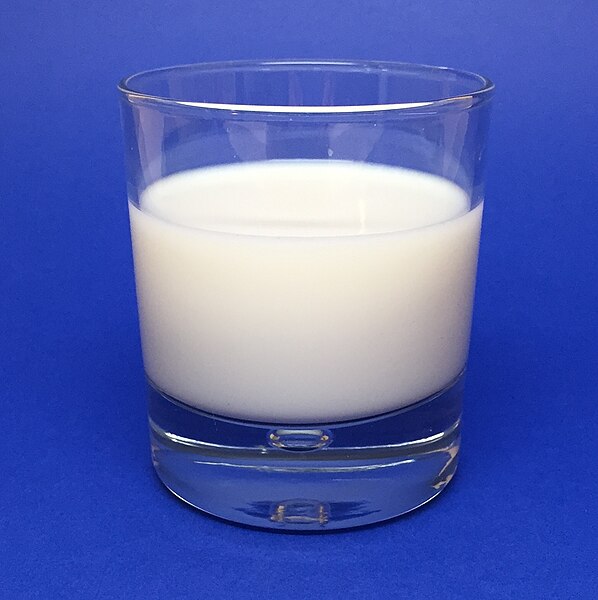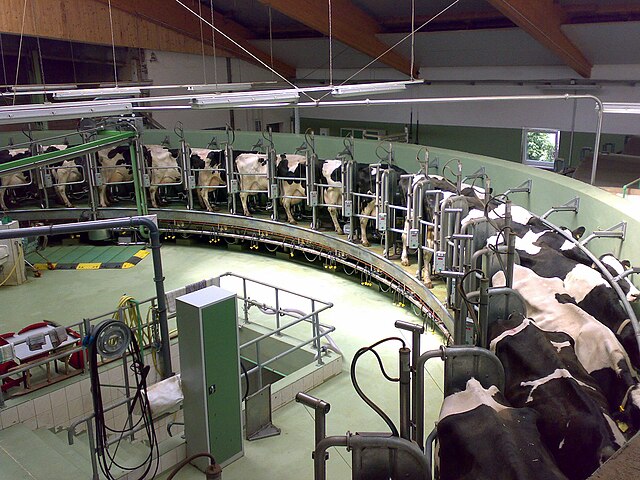Food fortification or enrichment is the process of adding micronutrients to food. It can be carried out by food manufacturers, or by governments as a public health policy which aims to reduce the number of people with dietary deficiencies within a population. The predominant diet within a region can lack particular nutrients due to the local soil or from inherent deficiencies within the staple foods; the addition of micronutrients to staples and condiments can prevent large-scale deficiency diseases in these cases.
Manufacturers once proposed selling fortified junk food and beer, but USFDA policies of the time forbade it.
Milk is a white liquid food produced by the mammary glands of mammals and the caecilian Siphonops annulatus. It is the primary source of nutrition for young mammals before they are able to digest solid food. Immune factors and immune-modulating components in milk contribute to milk immunity. Early-lactation milk, which is called colostrum, contains antibodies that strengthen the immune system and thus reduce the risk of many diseases. Milk contains many nutrients, including calcium and protein, but also lactose and saturated fat.
A glass of cow milk
Cows in a rotary milking parlor
Breastfeeding to provide a mother's milk
A goat kid feeding on its mother's milk





